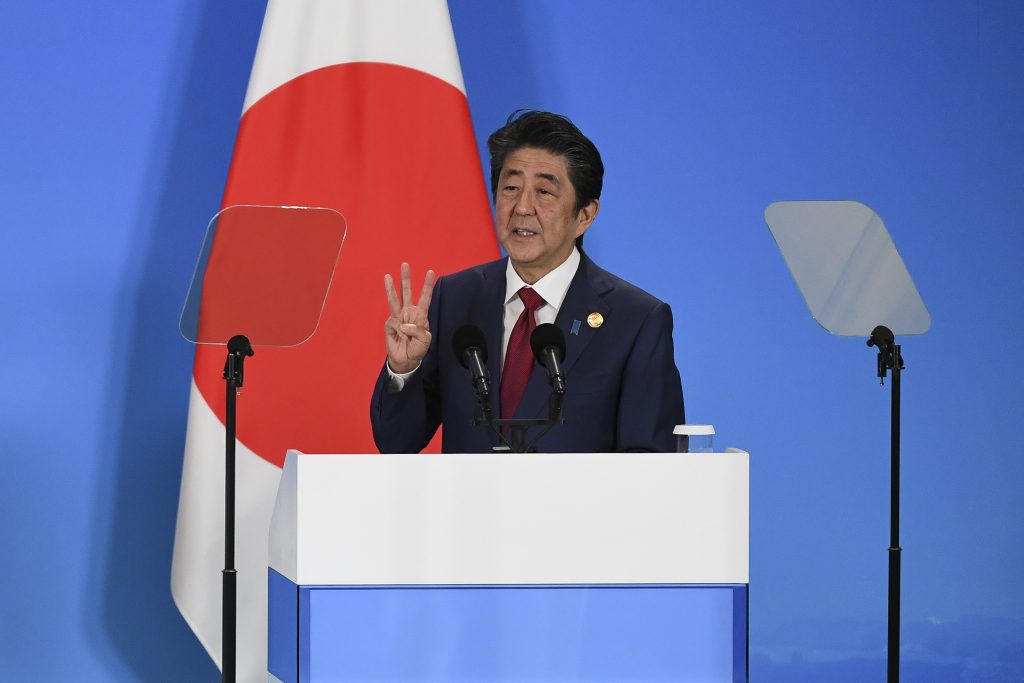
- ARAB NEWS
- 24 Apr 2024

TOKYO: Japanese Prime Minister Shinzo Abe's policy speech Monday that highlighted his government's efforts in rebuilding the country's finances and reinvigorating local economies has raised questions over apparent differences to actual achievements.
Abe is expected to be grilled by opposition parties over such disparities in parliamentary debates that started Wednesday, with some pundits saying that the prime minister conveniently trimmed facts in order to emphasize the achievements of his government's longtime rule.
"The Japanese economy grew 13 percent in the last seven years, with tax revenue seen reaching the largest-ever level in the next fiscal year," which starts in April, Abe said in the speech.
In fact, the government's estimate for the tax revenue, totaling some 63 trillion yen for fiscal 2020, could be revised down depending on economic performance and thus may not be appropriate for use as part of data demonstrating his government's achievements.
The prime minister also stated that central and local government bond issues decreased for the eighth consecutive year. In fiscal 2016, however, the public debt issues actually increased from the previous year, when the amount additionally issued during the fiscal year is included.
Asked about the difference at Tuesday's press conference, Chief Cabinet Secretary Yoshihide Suga said the information given by Abe in his speech was based on comparisons between initial budgets.
As an example of successful migration from Tokyo to other areas backed by his government's strategy for regional revitalization, Abe cited the real name of a man who moved to the city of Gotsu in Shimane Prefecture, western Japan. Some media reports, however, said the man may no longer be a resident of the prefecture.
Suga refrained from confirming the man's current residency at the news conference, for the sake of protecting personal information, but said, "There is no problem, as he lived in Gotsu for at least three years."
Meanwhile, the ruling Liberal Democratic Party and others welcomed Abe's reference to Taiwan in the speech.
While expressing gratitude for the support given from overseas to the northeastern Japan areas devastated by the March 2011 earthquake and tsunami, Abe said the disaster-hit village of Noda in Iwate Prefecture will serve as the host town for athletes from Taiwan who will be competing in the 2020 Tokyo Olympics and Paralympics, aiming to deepen exchanges with them.
It is unusual for a Japanese prime minister to refer to Taiwan, with which Japan has no diplomatic ties, in a policy speech. During Monday's speech by Abe at plenary meetings of both chambers of the Diet, Japan's parliament, ruling party members clapped their hands when the prime minister talked about Taiwan.
Taiwanese President Tsai Ing-wen said on Twitter she was delighted when the word "Taiwan" received a lot of applause in Japanese parliament.
JIJI Press